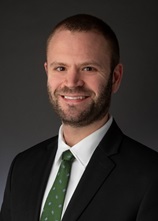Global Life Sciences Update
Newly Enacted California Law Formalizes Corporate Practice Restrictions
Corporate Practice of Medicine Provisions
The list of prohibited actions falls into two categories:
- Interfering with a physician or dentist’s professional judgment in making healthcare decisions, including those related to
- the appropriateness of diagnostic tests
- the necessity of referrals to other healthcare providers
- the ultimate overall care of patients
- the number of patients a physician or dentist will see or the number of hours they will work in a given period of time
- Exercising control over or being delegated certain powers, such as
- owning or determining the content of patient medical records
- making staffing decisions based on clinical competency
- setting parameters for contractual relationships with third-party payors or with other physicians or dentists for the delivery of care based on clinical competency or proficiency
- deciding on coding and billing for patient procedures
- approving the selection of medical equipment and supplies
The bill renders any contract or agreement that enables such prohibited interference or control void, unenforceable, and against public policy. Moreover, the bill clarifies that the form of the practice (sole proprietorship, partnership, corporation, etc.) does not affect the applicability of these restrictions. However, the law explicitly permits unlicensed persons or entities to assist or consult with a physician or dental practice to perform the tasks in the second group (i.e., unlicensed individuals can assist in making staffing decisions, setting parameters in relationships with third-party payors, etc.).
Private equity sponsors or hedge funds operating physician or dental management platforms in California should closely review their arrangements for compliance with these new requirements.
Attorney Advertising—Sidley Austin LLP is a global law firm. Our addresses and contact information can be found at www.sidley.com/en/locations/offices.
Sidley provides this information as a service to clients and other friends for educational purposes only. It should not be construed or relied on as legal advice or to create a lawyer-client relationship. Readers should not act upon this information without seeking advice from professional advisers. Sidley and Sidley Austin refer to Sidley Austin LLP and affiliated partnerships as explained at www.sidley.com/disclaimer.
© Sidley Austin LLP
Contacts
Offices
Capabilities
- Stay Up To DateSubscribe to Sidley Publications
- Follow Sidley on Social MediaSocial Media Directory

